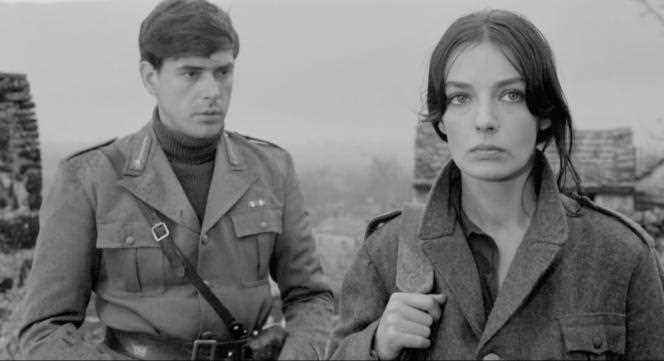Every summer, rarities and rediscoveries crowd the billboards of repertoire halls, particularly with regard to Italian cinema, which is very popular with the public. It’s the turn of the remarkable girls for the army (1965), by Valerio Zurlini, in his time poorly seen and misunderstood, too quickly returned to limbo, to resurface.
In the tremendous post-war momentum that made Italian cinematography one of the most important in the world, Zurlini remained an obscure, parsimonious figure (eight feature films in twenty years), whom his high artistic demands, his worries production or his aborted projects have often kept away from the sets. Nevertheless, we owe him some masterpieces of existential doubt, such as The girl with the suitcase (1961), Personal diary (1962) or The teacher (1972). girls for the army is only the fifth feature film of a filmography which, thereafter, will only go by fraying.
With this vaguely saucy French title, it is not forbidden to prefer the original, The Soldier, which can be translated as “soldiers”. The story takes as its setting one of the most aberrant episodes of the Second World War, namely the lightning war that Italy declared on Greece in October 1940, a pure boasting by Mussolini aimed at showing off to his partner German. A grotesque and short-lived epic, like the Ethiopian campaign, but which, despite being futile, nevertheless caused a considerable number of deaths, injuries, displacements, and human disasters.
Marie Laforêt, undoubtedly in her most beautiful role on screen, plays Eftikia, a prostitute whose pragmatic femininity is expressed
In 1942, in occupied Greece, the young lieutenant Martino (Tomas Milian), on leave in a putrescent Athens, crumbling under ashes and corpses, accepts, in order to return to his post in the North, to convoy a dozen prostitutes. His mission, along the way, is to supply the military brothels on his way. Recruited by the army as “auxiliaries”, these women are mainly starving Greeks, thrown into the streets by the devastation of the conflict. They are the “soldiers”, giving their bodies for the war effort, sometimes falling under the indifferent bullets of the partisans.
It is first of all the crudeness of the film which surprises, this one opening with the image of the corpse of a putrefied animal, designating in the act of war a deep moral decay. Zurlini does not choose this eloquently absurd conflict for nothing: Rome attacking Athens, it is the very principles of Western civilization that are self-devouring (“We would be barbarians without the ideal of beauty bequeathed by the ancestors of these unfortunates”recognizes an officer).
You have 41.42% of this article left to read. The following is for subscribers only.
